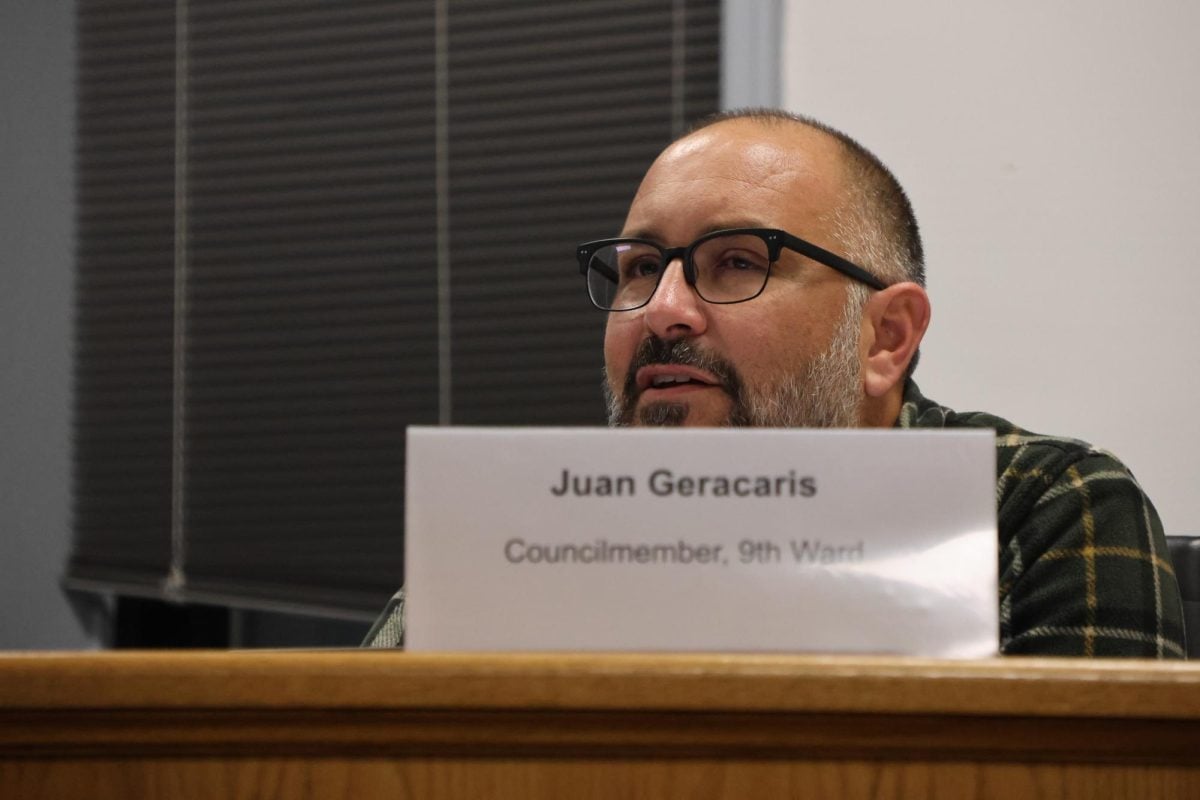Evanston Housing and Community Development Committee deliberated the Envision Evanston 2045 Comprehensive Plan and the Draft 2025-29 Consolidated Plan on Tuesday evening.
The Consolidated Plan, which seeks to prioritize housing and economic development strategies for lower- to middle-income families, was introduced to the committee by Housing and Grants Supervisor Marion Johnson.
Envision Evanston 2045, the central focus of Tuesday night’s meeting, aims to revise the city’s comprehensive plan and zoning code to strengthen the local economy and achieve sustainability goals, according to the program’s website.
Community Development Director Sarah Flax described the plan as a “once-in-a-lifetime” opportunity that emphasizes community input.
Ald. Juan Geracaris (9th) said he looks forward to how Envision Evanston could pan out and that the plan is a great start to increasing the housing supply. Geracaris, however, said he wondered how the zoning draft would translate to zoning changes.
With town hall meetings slated for December, Flax clarified that only preliminary drafts for Envision Evanston would be released, saying the goal is to not reinforce any particular course of action without further community input.
The zoning code draft will be released later this week, according to Flax. She outlined a three-month timeline with goals to forward final recommendations to the City Council by February or March.
Flax said the goal of the revised zoning code is to mitigate concerns about displacement among families living in Evanston who are being pushed out or whose children can’t afford to move back.
When surveying the community, Flax said the hardest cohorts to reach out to were low-income individuals — primary beneficiaries of Envision Evanston.
“(The plan is) so intricately interwoven with what happens with zoning,” committee member Fran Sweeney said.
Sweeney said she was curious what Envision Evanston needed from the committee beyond what has already been addressed.
However, she praised the “adaptive” reuse of buildings not originally intended for residential purposes, such as the former Varsity Theatre and historic Sojourner Covenant Church.
Another goal of Envision Evanston is to transform mixed-use buildings and former retail spaces into residential ones, according to Flax. Although an existing ordinance reportedly prohibits residential spaces on the ground floor of Evanston buildings, Flax suggested that integrating public and private spaces through the outdoor “green” installations, community rooms or fitness centers can still foster a sense of residential community.
The committee also announced that member Hugo Rodriguez would retire from his post.
Reflecting on his work, Rodriguez said it was a “humbling” experience to grapple with what the city needs, how the city works and how to best serve vulnerable members of the community.
He praised the committee for playing a “critical” role in Evanston, saying that it must continue to be “vigilant” and advocate for the ones who need support the most.
“I am definitely a strong advocate of affordable housing, and I’m going to continue my work, even if it’s behind the scenes,” Rodriguez said.
Email: [email protected]
Related Stories:
— Housing and Community Development Committee replaces Inclusionary Housing Ordinance
— City Council eyes new development plans in downtown Evanston amid affordable housing concerns
— City flag approved, new affordable housing authorized at City Council






